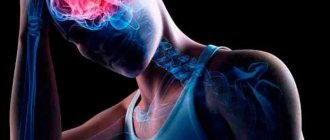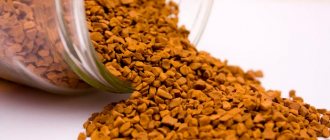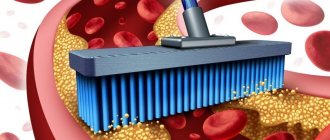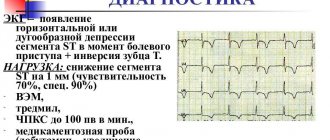Classification
In fact, coffee differs according to many criteria, and it is possible to find out exactly what effect will be obtained at the end only if all factors, even the most insignificant ones, are taken into account.
So, by what criteria are the products divided?
- degree of roasting;
- place of growth;
- variety;
- the amount of water in relation to the main part;
- dose;
- type of product (grains, freeze-dried granules, etc.).
It should be taken into account that when roasting coffee beans, substances are formed that cannot be synthesized until now. Therefore, a product that even remotely resembles its properties has not yet been invented.
It is believed that medium roast beans have more caffeine, but this is partly misleading
It is impossible to say for sure whether coffee constricts blood vessels or dilates them if we are talking about a ground product or an instant product, since “foreign substances” can be added to such ready-made products, such as chicory, preservatives, dyes, etc. .
But what happens if you consider the grains, ground yourself, from which you get a wonderful viscous drink that gives you vigor.
Drinks with and without caffeine
It is important to understand that the main effect on blood vessels is exerted mainly by caffeine, and not by other components. At the same time, the alkaloid is also present in other drinks that are consumed in everyday life.
Therefore, it is necessary to realize that the substance contained in other drinks has the same effect on the body. Let's look at caffeine-containing drinks and the amount of active substance in them.
| Drink name | Caffeine content (g per 250 ml drink) |
| Ground coffee | 0,1— 0,2 |
| Instant coffee | 0,08 — 0,1 |
| Green tea | 0,06 — 0,08 |
| Black tea | 0,04 — 0,07 |
| Cocoa, hot chocolate | 0,06— 0,04 |
| Cola | 0,2 |
| Decaffeinated coffee | 0,003 — 0,005 |
| Chicory | 0 |
Note! It is caffeine that constricts blood vessels or dilates them, regardless of what type of drink you choose!
It is important to understand that the values indicated in the table are quite relative, since everything depends on the active substance.
Let's take a closer look:
- 1 bag of black tea can be brewed in a standard mug, and its caffeine content will be 0.04 - 0.07.
- The same 1 tea bag can be used to brew a thermos for two mugs, but the concentration of the alkaloid will remain the same, 0.04 - 0.07. Thus, by drinking the entire thermos, a person consumes the same dose of the active substance as in the first case.
Very often this misconception concerns coffee; patients refer to the fact that they drink a “weak” drink. For coffee there are no concepts of “strong” or “weak”; for it there are concepts of dose. The caffeine concentration in a mug of espresso (60-70 ml.) and in a mug of latte (200-250 ml. in the photo) is exactly the same.
The volume and taste are different, but the amount of caffeine is the same
This is interesting! Mate tea is still not reliably classified as a caffeine-containing drink, citing the fact that the substance contained in such an invigorating mate is not caffeine, but its analogue (mateine). At the same time, some scientists consider mateine and caffeine as synonymous concepts, however, exact meanings could not be found.
How does coffee affect the vascular system?
Scientists are still studying the effect of coffee on blood vessels. This topic causes a lot of controversy and disagreement. It’s interesting that coffee lovers drink strong espresso both to dilate and constrict blood vessels. Why is that?
The answer to the question - does coffee dilate or constrict blood vessels is simple. Caffeine has different effects on the human body systems. So, the main active ingredient of the drink has a positive effect on the blood vessels of the human brain when the patient has low blood pressure. Thanks to coffee, the patient gets rid of unbearable headaches.
Migraines occur due to dilation of blood vessels that put pressure on other brain tissue. Pain is caused by nerve endings touched by arteries. Pharmacy has long known about the positive effect of caffeine on the central nervous system and therefore many dosage forms (citramon, askofen, copacil) contain this component. Patients with hypotension, in order not to take pills, often replace them with a cup of aromatic espresso. In such cases, coffee constricts blood vessels, and a person feels harmony.
With increased pressure, when the blood vessels narrow, it affects not only the central nervous system, but also the gastrointestinal tract. The process affects the functions of the stomach, pancreas and liver, which may result in vomiting and nausea. Coffee will not help in this case. If there is no food in the stomach and you drink a cup of espresso, the mucous membranes will be damaged, and over time gastritis, ulcers, etc. will begin to appear. The drink causes an increased production of gastric juice, enzymes for digestion of food and bile. Coffee is allowed to be drunk only after meals.
Every day, more than 2 billion cups of Americano, cappuccino, latte, espresso and other varieties are drunk in the world. Coffee and blood vessels: the relationship between drink consumption, the functions of blood flow elements and the organs of the cardiovascular system is ambiguous. Doctors give polar answers when asked whether coffee dilates blood vessels.
Vasodilation
By relaxing smooth muscles, coffee significantly dilates blood vessels in the heart, muscle tissue, and kidneys. Blood supply to organs improves, oxygen and nutrients are supplied in high concentrations, which generally has a positive effect on functions. The slight diuretic effect after the next cup is provoked by a tonic effect on the kidneys.
- Accelerates blood flow, improves blood supply to tissues.
- Intensive cleansing of tissues from lactic acid accumulated due to active physical activity.
- Helps restore normal muscle structure.
Thanks to the action of the active components, the blood passing through the pulmonary alveoli is intensely saturated with oxygen, which has a beneficial effect on the functioning of all organs and systems.
Vasoconstriction
The blood flow system located in the brain and in the abdominal cavity reacts differently to the components of an invigorating morning mug. To understand how coffee affects the blood vessels of the brain, you need to remember the mechanism of its action on the organ. The main component caffeine stimulates the production of the hormones adrenaline and norepinephrine.
The effect of coffee on the brain is determined by the properties of its components and the individual susceptibility of a person. If the metabolic processes of the components of the drink are slowed down, they act more strongly. The tonic effect is due to the effect of coffee on the vessels of the main organ of the central nervous system. Coffee constricts the blood vessels in the brain, which causes the central nervous system to work intensively. Brain activity is activated, drowsiness disappears, vitality increases.
Coffee acts as a tonic and strengthening substance for the blood vessels of the brain. The walls of the elements of the blood flow system become elastic, resistant to atherosclerotic lesions. As a result of the positive effect of coffee on the blood vessels of the brain, headaches are eliminated. Caffeine is included in many medications developed to treat chronic migraines.
As soon as a person wakes up, neurons in the brain begin to actively work. At the same time, the body produces a substance called adenosine, which is necessary for the functioning of biochemical processes. It is believed to cause fatigue and suppress vigor. And when the amount of adenosine becomes critical, the nervous system reacts to this, and the person has a desire to sleep.
While caffeine, entering the body, does the opposite. It blocks adenosine receptors. Therefore, additional substances enter the brain - stimuli in the form of dopamine and glutamic acid. After this, the feeling of drowsiness disappears. This result can be caused by 100 mg of caffeine (200 ml of strong drink).
Food and drinks also cause a similar effect on blood vessels; the hormone adrenaline is produced, as a result of which blood and oxygen flow faster into the tissues. Accordingly, one cup of coffee cannot harm the body of a healthy person in any way: the blood vessels slightly narrow and dilate.
Repeated consumption of coffee can affect the nervous system and blood vessels, but only if there are health problems
Coffee contains over 500 studied chemicals. None of them can be harmful or poisonous to the human body. The most active of the entire list is the natural alkaloid caffeine. It is responsible for most of the processes that occur in the body after a cup of coffee.
The effects of caffeine and other chemical compounds occur in complex ways. In other words, all systems of the human body are influenced to one degree or another by it.
The cardiovascular system is a branched mechanism, complex in the operation and interaction of its parts. Large and small vessels, connected to each other, penetrate all our tissues, pass through all internal organs, transporting blood, oxygen, and nutrients to them. It is wrong to imagine that because of caffeine all millions of our blood vessels will begin to contract or expand at once. Everything is much more complicated.
Coffee dilates or constricts blood vessels: the effect of coffee on the blood vessels of the brain
A person drinks coffee every day and does not think about the effect of the drink on systems and organs. The effect of coffee on blood vessels varies. Caffeine brings benefits to some people, but irreparable harm to others. It depends on internal factors and the body’s reaction to the product.
The brain and the effects of coffee
In its activity and nature of its effects, caffeine is similar to the neurotransmitter adenosine, which is produced by brain cells. The action of the substance is aimed at slowing down the activity of nerve cells. The brain receives a signal to rest and sleep.
When a large amount of coffee enters the body, caffeine takes the place of adenosine. It blocks the rest message and constricts blood vessels. After “processing” the brain, the pituitary gland is activated, producing a large amount of hormones. The secretion is sent to the adrenal glands, where it is processed into adrenaline.
When adrenal hormones are released into the blood, a person experiences characteristic symptoms:
- increased breathing,
- increase in heart rate,
- pupil dilation.
In addition to the effect of caffeine on the brain, the substance affects the vascular system associated with brain activity.
The mechanism of action of caffeine on the vascular system
The performance of the vasomotor center directly depends on the condition of the blood vessels. Caffeine can narrow or dilate arteries. This leads to various consequences.
After drinking coffee, the coronary vessels begin to increase in size, and the blood is distributed unevenly throughout the system. This causes increased blood supply to some organs and insufficient blood supply to others. The muscles become toned. The nervous system is excited, and the body’s performance is activated.
Interesting! It is believed that the effect of natural coffee on blood vessels differs from the effect of soluble powder. Both types of drink contain the same amount of caffeine, but the concentration of trace elements in freshly ground beans is higher.
The effect of caffeine on blood vessels
Some coffee lovers, drinking more than one cup of hot drink every day, are confident in the positive effect of caffeine on the vascular system and the body as a whole. Others limit their coffee consumption to a minimum. The dispute is inappropriate - caffeine has different effects on certain types of blood vessels.
Vasodilation
When blood vessels dilate, blood flow increases, more oxygen enters the system, and the removal of harmful substances accelerates. This is how coffee acts on blood vessels that nourish:
- heart,
- respiratory system,
- kidneys,
- muscles.
The vessels supplying blood to the muscles dilate and tone the muscle tissue. Mental and physical performance temporarily increases. When a person plays sports or works physically, lactic acid is released from the body faster. Damaged muscles are restored in a shorter period of time.
The coronary arteries dilate and provide an increased flow of micronutrients and oxygen to the heart. In this case, the frequency of organ beats may increase, but only slightly. Blood flow increases in existing atherosclerotic areas. In a person suffering from hypotension, blood pressure normalizes.
The dilation of the renal arteries contributes to a slight slowdown in the excretion of sodium ions. The vasodilating effect is manifested in a diuretic effect, improving the functioning of the muscles of the organ.
Vasoconstriction
Caffeine has a vasoconstrictor effect on the brain. This leads to normalization of low blood pressure and relief of migraines. The occurrence of headache is due to the expansion of the lumen of blood vessels.
Enlarged ducts put pressure on nerve endings and cause spasms.
Therefore, many people suffering from low blood pressure and headaches seek to improve their condition with a cup of hot and aromatic coffee.
In addition to the effect of coffee on the blood vessels of the central mechanism, the drink can have two effects on the gastrointestinal tract. When the vessels supplying the gastrointestinal tract narrow, the production of gastric juice and bile increases.
The secretion released is an aggressive environment, so coffee should be consumed only after meals. This is the only way to ensure improved digestion. Otherwise, the chances of developing diseases of the digestive organs are high.
Interesting! Coffee lovers have cold hands, which is caused by a sharp narrowing of the blood vessels under the skin.
Benefits of caffeine for the brain
Constriction of blood vessels in the brain is not the only valuable property of coffee. The benefits of the drink are much wider:
- temporary improvement in mental performance,
- increased blood pressure due to hypotension,
- acceleration of metabolism,
- preventing the development of coronary disease,
- normalization of the endocrine system.
An unusual effect of the drink is to prevent tissue oxidation. Acting as an antioxidant, coffee slows down the aging process and reduces the risk of tumor formation. Caffeine is recommended for use by people who have:
- menstrual pain and headaches,
- decreased heart rate,
- constant feeling of fatigue and drowsiness,
- lethargy and physical weakness.
For medicinal purposes, coffee is prescribed only by the attending physician after conducting the necessary research. This will eliminate pathologies of internal organs and blood vessels of the brain.
Interesting! Caffeine is an alkaloid. This explains its ability to invigorate, but if consumed in excess, the activity is suppressed.
Who should avoid drinking coffee?
Coffee cannot be classified as one of the groups of drugs, but the drink has an effect on the vascular system and internal organs. To avoid unwanted consequences, it is recommended to limit caffeine consumption:
- teenagers
- women who are in the 2nd and 3rd trimester of pregnancy,
- hypertensive patients
- for insomnia or nervous excitability,
- patients with mental disorders.
Under these conditions, the maximum number of cups of coffee should not exceed 2 per day. Complete exclusion of the drink from the diet is justified in the following cases:
- early pregnancy and lactation period,
- hypertension,
- acute dysfunction of the vascular system of the brain and heart,
- increased content of sodium ions in the blood,
- period of exacerbation of gastrointestinal diseases,
- aneurysm,
- childhood and old age,
- recovery period after surgery performed on the heart muscle, arteries or brain,
- increased eye pressure,
- atherosclerosis.
It is harmful to drink coffee and take medications at the same time. This will provoke the development of acute forms of diseases of the digestive system.
How much is coffee without harm?
A caffeinated drink is healthy, but everything is good in moderation. An uncontrolled amount of coffee drunk provokes problems with the vascular system and internal organs. For each person there is an individual dose of drinking a hot drink. On average, it is recommended to drink no more than 4 cups per day.
Advice! If it is impossible to give up coffee, then it is better to buy coffee beans in vacuum packaging, which completely preserves the tart aroma.
To reduce the impact of coffee on blood vessels, you should adhere to certain conditions:
- Drink the drink in an amount not exceeding 350-400 ml. Add milk or fresh cream to each subsequent dose.
- Give preference to ground coffee over instant coffee.
- Drink caffeinated drinks only after meals.
- Drink coffee with caution if you have heart disease.
For some, one cup a day is enough, but some coffee lovers do not limit themselves to even 4. It all depends on the person’s well-being and the system’s reactions to caffeine. With constant “wear and tear” the body becomes physically and nervously exhausted.
The effect of coffee on blood vessels is due not only to a person’s predisposition to certain diseases.
More often, it is the individual characteristics of the body that allow you to consume large amounts of caffeine without visible harm to health.
Addiction is the most harmless consequence of overusing caffeine-containing drinks. The best solution would be the “golden mean” - making a couple of cups of aromatic coffee a day.
The terrible truth about coffee Is coffee good or bad? Caffeine and health Scientists have found out whether you should drink coffee in the morning. The answer will surprise you!
Loading…
Source: //KardioBit.ru/bolezni-serdtsa/drugoe/vliyanie-kofe-na-sosudy-golovnogo-mozga
Source of caffeine
If we discard all doubts about artificial additives, then in its pure form the drink itself consists of more than three hundred elements, but the main one is caffeine, which is credited with the development of addiction, vigor, increased heart rate, and increased blood pressure.
In some cases, this can be considered true, however, the mechanism of action of coffee on the body as a whole can manifest itself in different ways.
To understand whether your heart rate is high or not, you can simply count it
The substances increase the heart rate, and this effect was manifested in everyone who has ever tried a real, brewed drink. This happens not because coffee narrows or dilates blood vessels, but for a completely different reason.
The components directly affect the cells of the heart muscle, causing them to contract slightly faster than usual. An increased contraction of cardiomyocytes is an increase in heart rate, which means an increase in the number of beats per minute. Systole and diastole remain uniform, and there will be no other significant changes on the ECG.
This feeling is familiar to people with a hangover, as well as to those who have experienced migraine attacks, when a headache heats up the brain to the limit. Anyone who has drank a strong drink in one situation or another knows that after a mug of freshly brewed drink, your head quickly comes back to order.
Why is this happening?
- The fact is that caffeine dilates the vessels responsible for the outflow of blood from the head.
- And vice versa, the vessels that are responsible for the inflow narrows.
By stimulating the outflow of blood in the cerebral veins, the headache quickly passes, since there is no excess fluid in the cerebral cavity. The same effect can be achieved by simply swallowing a caffeine tablet, but this is acceptable if you do not have concomitant pathologies when the alkaloid is contraindicated.
There are plenty of cerebral vessels that are affected by active components
Without a doubt, everything is clear with the cerebral venous vessels, and this is not just the guesswork of scientists, but repeatedly confirmed experimental data that was carried out over a long period of time using caffeine tablets, as well as with liquid drinks of the appropriate quality.
Contrary to popular belief, an invigorating drink acts differently on individual parts of the body, and blood vessels are no exception, so we can say that coffee constricts blood vessels. Some may consider this a paradoxical misunderstanding, but the fact remains.
Peripheral vessels, including venous ones, narrow, the inflow and outflow of blood changes in contrast to normal values. Of course, such a phenomenon is not so significant, and in most cases such vasoconstriction does not bring any discomfort to a person; one can hardly see a deathly pale person after one mug.
You cannot see the narrowing of peripheral vessels with your eyes.
Need more coffee
Due to the effect on blood vessels, significant changes can be observed with an overdose of caffeine, in particular this applies specifically to peripheral vessels, which is why the limbs change their tint to bluish or whitish.
You can watch the video in this article to learn more about the symptoms of coffee overdose.
It is important to understand that the main effect on blood vessels is exerted mainly by caffeine, and not by other components. At the same time, the alkaloid is also present in other drinks that are consumed in everyday life.
Therefore, it is necessary to realize that the substance contained in other drinks has the same effect on the body. Let's look at caffeine-containing drinks and the amount of active substance in them.
| Drink name | Caffeine content (g per 250 ml drink) |
| Ground coffee) | 0,1— 0,2 |
| Instant coffee) | 0,08 — 0,1 |
| Green tea) | 0,06 — 0,08 |
| Black tea) | 0,04 — 0,07 |
| Cocoa, hot chocolate | 0,06— 0,04 |
| Cola | 0,2 |
| Decaffeinated coffee | 0,003 — 0,005 |
| Chicory | 0 |
It is important to understand that the values indicated in the table are quite relative, since everything depends on the active substance.
Let's take a closer look:
- 1 bag of black tea can be brewed in a standard mug, and its caffeine content will be 0.04 - 0.07.
- The same 1 tea bag can be used to brew a thermos for two mugs, but the concentration of the alkaloid will remain the same, 0.04 - 0.07. Thus, by drinking the entire thermos, a person consumes the same dose of the active substance as in the first case.
Very often this misconception concerns coffee; patients refer to the fact that they drink a “weak” drink. For coffee there are no concepts of “strong” or “weak”; for it there are concepts of dose. The caffeine concentration in a mug of espresso (60-70 ml.) and in a mug of latte (200-250 ml. in the photo) is exactly the same.
The volume and taste are different, but the amount of caffeine is the same
An ordinary person very often drinks drinks that contain such an active substance as caffeine, which explains the fact that not only coffee dilates or constricts blood vessels, but other drinks too.
It is important not only to understand that coffee in excessive quantities can be very harmful, but also that any drink in a certain dose can have a similar effect. In any case, you should not abuse caffeine, especially in cases where there are already problems with blood vessels.
Caffeine acts as a dope on the body because it is part of the methixanthim group. It minimizes the feeling of fatigue, increases endurance, activates brain performance and physical activity. When drinking coffee in acceptable quantities (2-4 cups per day), breathing quickens, blood circulation increases and the functioning of the cardiovascular system changes.
When asked whether coffee dilates or constricts blood vessels, the answer is ambiguous. It all depends not only on the composition of the coffee, but also on the type of vessels. It is able to dilate blood vessels:
- Cardiac muscle: blood circulation improves and nutrients and oxygen enter the muscle.
- Skeletal muscles. With increased blood flow, they become stronger.
- Kidney. Acts on the excretory organs, accelerating the excretion of breakdown products, water, uric acid.
- Lungs. The capillaries in the alveoli are actively enriched with oxygen, which prevents hypoxia.
Under the influence of coffee, blood vessels narrow into:
- Gastrointestinal tract. The secretion of gastric juice increases and digestion improves. There is an active breakdown of the main components of food.
- Pelvic organs. Can relieve or reduce pain from cystitis, urethritis and other diseases in this area.
- The brain. Acts as an antispasmodic, relieving discomfort during spasms.
Studies conducted in 2020 (source: PubMed, Embase, CINAHL, Cochrane Database of Systematic Reviews, and screening of references.) looked at the effect of coffee on vascular health. Two groups of people were studied: coffee lovers and coffee opponents. According to scientists, drinking coffee is beneficial for a number of reasons:
- heart and vascular diseases are reduced by 15%;
- the likelihood of avoiding a stroke increases by 30%;
- the risk of cardiovascular pathologies is reduced by 19%.
This effect is due to the presence of polyphenols in coffee, so moderate consumption of the drink brings undeniable benefits. It helps the body function when consumed in moderation.
Long-term observations have proven what makes coffee healthy:
- One cup contains 29% of the daily requirement of vitamin P, which makes vascular walls elastic and capillaries strong.
- Under the influence of caffeine, the aorta expands. The activity of the myocardium (heart muscle) increases, especially during physical activity.
- The alkaloid acts as a conductor of nerve impulses to the heart muscle, which is important for bradycardia and slow heart rate.
- The drink is useful for atherosclerosis: it improves blood supply to areas with poor patency. It is advisable to use it diluted by adding milk or cream.
- Antioxidants act on oxidation products, preventing the development of heart failure.
- It has a positive effect on low blood pressure, leveling it, therefore it is useful for hypotensive patients.
- Caffeine relieves migraine attacks that occur due to the expansion of vascular lumens. Nearby tissues and nerve endings experience pressure, which leads to pain. Coffee helps narrow blood vessels and can replace medications for migraines.
What does coffee do to blood vessels when Caffeine enters the bloodstream:
- blocks an enzyme that affects the energy source in muscle fibers;
- reduces the sensitivity of receptors in the nervous system;
- reduces the effect of metabolites on vascular walls.
As a result of this action, energy and calcium ions necessary for muscle contraction accumulate in the muscles. The effect of caffeine on blood vessels causes them to sharply narrow. The speed of blood movement through the narrowed lumens decreases, so the heart muscle starves for a short time.
The work of the smooth muscles of the vascular walls, which shrink, is also disrupted. This leads to headaches, paleness of the extremities, and possible partial loss of coordination of movement. Then the lumen expands and the “living motor” works faster: the frequency of its contractions increases.
The effect of coffee on the blood vessels of the brain has been noted. When the lumen of the cerebral arteries decreases, the blood moves slowly and glucose stops flowing to the neurons. This leads to starvation of nerve tissue. This effect occurs gradually and by the evening the person experiences poor attention, absent-mindedness, and drowsiness.
The effect of coffee on blood vessels
Scientists have discovered about 500 different substances in coffee. Of these, caffeine is believed to have the most powerful effect on the body. Coffee expands some blood vessels, while others, on the contrary, narrows them. But the drink contains another alkaloid - theobromine, which also affects the walls of blood vessels in a certain way.
Vasodilator effect of coffee
Coffee dilates blood vessels that nourish the heart muscle, kidneys, and skeletal muscles. Thanks to caffeine, the walls of blood vessels relax, resulting in increased blood flow and oxygen supply to the heart.
As a result, performance increases; it’s as if a person gets a second wind.
This effect is often used by fitness club regulars: after a cup of coffee, the intensity of your workout increases.
But caffeine provokes the release of adrenaline into the blood, which contributes to wall tension, narrowing of arterial vessels and increased blood pressure. With a moderate dose of caffeine, vasodilation and constriction in a healthy person are within normal limits. A certain pulsation of the walls of blood vessels occurs, a kind of “charging” that strengthens them.
However, if a person’s body receives 400–600 mg of caffeine (4–7 cups of espresso) during the day, then over time even healthy blood vessels cannot withstand such a load.
When caffeine tablets are taken for weight loss, the daily intake of the substance is exactly 600 mg, and after a course lasting several months, a break of at least six months is recommended.
But an avid coffee lover cannot survive six months without his favorite drink! Therefore, there is only one way out: those who want to keep their blood vessels healthy need to ensure that the daily dose of caffeine does not exceed 400 mg.
“Caffeine gymnastics” is quite dangerous for weakened blood vessels affected by atherosclerosis. When brewing coffee, a harmful substance is formed - cafestol, which contributes to the deposition of cholesterol plaques on the walls of blood vessels.
It should also be taken into account that coffee contains a strong antioxidant - chlorogenic acid, which has a beneficial effect on the walls of blood vessels, but if there are a lot of antioxidants, a blood clot may break off. Therefore, the drink should not be abused if you have varicose veins and thrombophlebitis.
The effect of coffee on the blood vessels of the kidneys
Caffeine dilates the blood vessels of the kidneys and increases urination, during which not only waste products, but also calcium are removed from the body. If a person drinks 1–2 cups of coffee a day, but at the same time drinks a lot of water and eats food rich in vitamins, macro- and microelements, then the leaching of calcium does not affect the condition of bones, teeth and hair.
But 40–60 minutes after consumption, the effect of caffeine on the kidney vessels weakens, and under the influence of theobromine they narrow. Sometimes it feels like a slight pain.
Instant coffee contains more theobromine than natural coffee, and accordingly, the load on the kidneys when consuming concentrate increases.
Therefore, in case of kidney diseases, it is recommended to limit the consumption of coffee, especially instant coffee.
Vasoconstriction caused by coffee
Coffee constricts blood vessels in the brain, gastrointestinal tract and pelvis. Dilatation of blood vessels in the brain often causes headaches. Coffee helps the walls of blood vessels return to normal, and the person gets rid of pain.
It is especially useful to drink coffee if the headache occurs due to a long stay in a room with stale air or a smoking room. In such cases, pain signals to the brain that it lacks oxygen.
When caffeine causes blood vessels to constrict, the brain's need for oxygen decreases. Thanks to the antioxidant chlorogenic acid, it is easier for blood vessels to cope with the consequences of inhaling tobacco smoke.
Caffeine is included in many migraine medications.
While relieving pain, coffee simultaneously stimulates the brain centers. After drinking the drink, drowsiness disappears, and it becomes easier for a person to concentrate.
But the process also has a downside: caffeine constricts the blood vessels that supply the eyeball, and the adrenaline released after some time expands them. This is dangerous for glaucoma.
Caffeine relieves menstrual pain, and due to vasoconstriction, the volume of blood discharge decreases. Due to the fact that coffee constricts the blood vessels that nourish the placenta, it is recommended that pregnant women limit or exclude coffee, especially in the first trimester, when all the vital organs of the fetus are just developing and it needs an intensive supply of oxygen.
The healing effects of coffee
Painful conditions for which coffee is beneficial:
- hypotension (drink increases blood pressure);
- low heart rate;
- migraine;
- swelling of the feet (under the influence of caffeine, the kidneys work more intensely, removing excess fluid from the body);
- severe menstrual pain;
- fatigue, drowsiness, inability to concentrate.
If you abuse coffee, compensation mechanisms will develop over time, and the effect of caffeine will begin to wane. To prevent this from happening, you need to allow your body to take a break from your favorite drink 1-2 times a week.
You need to understand that coffee is not a medicine.
The drink helps if the feet are swollen due to the fact that a person has been sitting at the computer all day, and the headache is a consequence of the lack of fresh air in the room (for example, when the office is stuffy in winter, but you cannot open the window). However, if such conditions are included in the system, we are talking about a disease, and you should definitely consult a doctor.
Diseases for which coffee is contraindicated:
- high blood pressure (upper – from 140, lower – from 90 mm Hg);
- disruption of blood flow in the vessels of the brain and heart;
- arrhythmia;
- traumatic brain injury;
- glaucoma (increased intraocular pressure);
- aneurysm (pathological dilatation of blood vessels);
- phlebeurysm;
- thrombophlebitis;
- atherosclerosis.
It is recommended to avoid coffee in the first 2 weeks after any heart or vascular surgery. It is also worth reducing the consumption of the drink for people over 70 years of age.
How to reduce the effect of caffeine on blood vessels
Sometimes even those for whom coffee is strictly contraindicated want to enjoy its taste. There are several ways to reduce the effects of caffeine:
- drink decaffeinated coffee. It also contains caffeine, but in tiny doses;
- mix coffee with milk. The method is not controversial, since the drink becomes higher in calories, and milk contributes to constipation;
- snack on citrus coffee: a slice of lemon with sugar or a slice of orange with cinnamon.
More about the effect of coffee on blood vessels on CoffeeFan.
Source: //zen.yandex.ru/media/id/5c12ab2cae604200ac928df6/5d356a4ddfdd2500aefade35
The scent that separates day from night
Aromatic coffee is unlike anything else, but does it have an effect on the body? After all, anyone can recognize its smell, especially if the drink is brewed by hand.
The aroma of coffee, as such, does not affect blood vessels in any way, it does not narrow or dilate them, however, the invigorating effect in the morning is achieved precisely because of the aroma, and not any other properties.
Need a boost of energy? Just take a breath
Is it possible to do without caffeine completely?
An ordinary person very often drinks drinks that contain such an active substance as caffeine, which explains the fact that not only coffee dilates or constricts blood vessels, but other drinks too.
It is important not only to understand that coffee in excessive quantities can be very harmful, but also that any drink in a certain dose can have a similar effect. In any case, you should not abuse caffeine, especially in cases where there are already problems with blood vessels.
How does coffee affect the vascular system?
Vasoconstriction
It turns out that caffeine has a double effect, constricting the blood vessels of the brain and expanding the elements of the peripheral system. However, before making a final conclusion, it is necessary to remember the complex effects of caffeine. It stimulates the release of adrenaline into the blood, which is responsible for the rapid supply of blood and oxygen to the body tissues.
In fact, caffeine causes blood vessels to pulsate slightly, constricting and dilating. There is no need to worry, because the same thing happens under the influence of food, drinks, glucose, and a host of external factors. We can say that such contraction and expansion occurs constantly.
Recently, scientists have discovered that the perception of caffeine is regulated at the genetic level, so the reaction to coffee of different people can be very different.
In general, the blood vessels of a relatively healthy person will not change too much from a cup of coffee. They will expand slightly, then narrow slightly.
Effect of caffeine on the body
Why do we feel a surge of strength, vigor, and energy after drinking a cup of coffee? Coffee is rich in a substance called caffeine, which has a tonic effect on the human body. You can even say that caffeine is in some way a drug, because it stimulates the body. However, the increase in vital activity after taking caffeine does not last long and often carries a hidden threat.
How does caffeine affect the human body:
- My head becomes clearer.
- A feeling of hunger appears.
- I want to breathe deeply.
- We need to put the surging energy somewhere.
Caffeine and the brain
All these manifestations are caused by stimulation of receptors in the brain by caffeine, the result is that the commands coming from the brain are transformed. Caffeine is very similar in structure to adenosine
. Adenosine is a neurotransmitter, that is, a substance that is synthesized by brain cells. It is produced throughout the day, its amount varies throughout the day. This substance slows down the activity of neurons, thereby signaling to the brain that it is time to rest and sleep.
Adenosine also affects the blood vessels of the brain. By attaching to receptors, it dilates the blood vessels of the brain. Since all vital functions slow down during sleep, breathing becomes shallow and heartbeats become rarer. This action of adenosine allows neurons to be more efficiently supplied with oxygen and other nutrients during sleep.
At a high concentration of caffeine, adenosine is replaced and connects with receptors, it disrupts the transmission of the nerve impulse that notifies the body that it is time to sleep, and constricts the blood vessels of the brain. If the spasm of blood vessels is strong, this manifests itself in dizziness and headache.
After caffeine stimulates the activity of the brain, its other parts are also connected. The pituitary gland reacts in its own way to such activity and begins to release a number of hormones into the blood that stimulate other glands to secrete. These hormones leave the brain and travel to the adrenal glands, where adrenaline is synthesized and released into the blood vessels, which is why most of the symptoms attributed to caffeine occur:
- dilated pupils;
- rapid breathing;
- rapid pulse;
- expansion of the main vessels supplying blood to vital organs (heart, brain), while the vessels of the skin and gastrointestinal tract narrow significantly. This phenomenon is called blood redistribution and occurs in emergency situations.
Caffeine and the cardiovascular system
Constriction of blood vessels under the influence of caffeine and increased heart rate can cause pain in the heart, shortness of breath, while the head begins to spin, nausea occurs, and loss of consciousness is possible. This condition is dangerous for people with heart problems. In this case, increased blood pressure caused by drinking coffee can lead to a stroke or heart attack.
Caffeine and the gastrointestinal tract
In this situation, drinking coffee has a positive effect, thereby facilitating the digestion of food. To do this, the drink should be drunk after eating. However, it is this action that leads to the development of gastritis, reflux disease, and the formation of stomach ulcers. Other products containing caffeine are not recommended for patients with the above conditions.
Effect on the reproductive system
Scientists continue to debate the effect of caffeine on potency. There are several theories. But most scientists agree that caffeine potency does more harm than good, and the effects of caffeine intake appear over time.
Drinking coffee is not good for a woman's reproductive function. Eggs are susceptible to all harmful substances entering a woman’s body.
Pregnant women should be especially careful with coffee, as regular consumption increases the risk of premature birth. Even during a normal pregnancy, a cup of coffee increases blood pressure and tones the uterus, which is dangerous for both the expectant mother and the fetus.
Caffeine is used in medicine as a cardiac stimulant. Scientists at Harvard University conducted a study, the results of which stated that drinking a cup of coffee daily reduces the risk of developing cancer by 2 times. However, there are also opponents to such a theory.
What is caffeine?
It is a white or slightly yellowish powder with a very bitter taste. Caffeine is a narcotic substance and, like any other drug, causes addiction. If a coffee lover tries to stop drinking coffee or at least reduce the number of cups he drinks per day, he will note that he feels dizzy and has a headache, it is difficult for him to concentrate, he has no interest in the world around him, he wants to sleep, and his behavior will be aggressive. This is caused by processes occurring in the human brain.
However, within a few days the brain will begin to adapt to new realities, and the head will stop spinning and hurting. Over time, other organs and tissues will begin to adapt to the new way of life, optimism and cheerfulness will return, and diseases of the cardiovascular system and digestive tract will become less of a concern.
Coffee is not a harmful product, but it must be consumed with caution.
Coffee is a well-known and beloved drink made from roasted coffee beans. Its special taste, aroma and vivacity are the features most valued by its admirers. Let's consider the effect of this drink on human health, where the key point will be the question: “Does coffee narrow or dilate blood vessels?”
Coffee mania is in full swing
If you already understand that coffee causes blood vessels to narrow or widen depending on where the vessel itself is located, then with hypertension and hypertension, not everything is so simple, but all because research in this area continues to this day.
Does coffee increase blood pressure, because blood vessels should constrict immediately after drinking a mug?
- Recent studies prove that blood pressure values do indeed become higher, however, this only applies to patients with hypotension.
- The debate surrounding hypertension remains open, so some cardiologists allow coffee consumption, while others strictly prohibit it.
Patients with hypotension should be careful
If coffee has been a hobby for a long time, then it is necessary to control its consumption. In addition to vascular pathologies caused by the consumption of caffeine in unreasonable quantities, central nervous system disorders may occur, psychosis may develop, insomnia may appear, and even heart rhythm disturbances.
Tea and coffee, although they are familiar drinks for every person, still pose a danger.
Everything is under strict control
Is it possible to control everything, and how to do it.
- If the effect of caffeine on blood vessels is really important to the patient, then you can eliminate it altogether, replacing it with chicory or any herbal tea. The alkaloid content will be zero, and you don’t have to think about whether coffee dilates blood vessels or something else.
- If we are still talking about caffeine-containing drinks, then laboratory data will be required to determine the exact dose, but if this is not possible, then you can completely use the table above, only in this case you will have to study all the nuances of preparing tea, including bagged options.
- Despite the fact that all varieties are different, you must rely only on personal preferences, since the manufacturer does not provide data on the concentration of the alkaloid in each variety.
Herbal tea - the choice of those who are against stimulants
All drinks, without exception, have different preparation rules; if you want to know as accurately as possible how much caffeine you consume, then the preparation instructions must be followed exactly to the smallest detail.
Conclusion
Coffee actually has an effect on the vascular system, narrowing blood vessels in the brain. The peripheral system first experiences an expanding effect, then, due to the released adrenaline, they contract. Adrenaline also tones the muscles of the blood vessels and the tissues through which they pass. This causes a surge of energy due to the activation of the transport function.
Overdose of coffee, which occurs after 6 cups per day, can lead to excessive accumulation of caffeine and its accumulative effects. In this case, a sharp increase and then decrease in pressure cannot be ruled out.
Take reasonable precautions when drinking coffee, and there will be no risk of excessive narrowing or dilation of blood vessels.
If you liked the site, share the link with your friends. Thank you!
Caffeine overdose
Another point that needs to be taken into account when trying to regulate your condition with the help of coffee is its dosage. If you regularly drink more than 4 cups of coffee a day, all the benefits of your caffeine habit will turn out to be harmful. With this mode of drinking coffee, the body is constantly “on the limit” and at some point it simply cannot stand it. In addition to physical harm to the gastrointestinal tract and cardiovascular system, coffee causes harm to the psyche, leading a person to a state of nervous exhaustion. Due to the constantly high content of caffeine in the blood, the nervous system does not rest even at night, because in order to remove the dose of caffeine from the body, it takes at least 6 hours.
It turns out that if you act wisely, then it is quite acceptable to maintain high performance on caffeine, but if you abuse this drink, a useful habit becomes harmful. In order not to harm yourself, you need, firstly, to drink only natural coffee and in moderate doses, and secondly, to know your physiological characteristics and not neglect them. A tendency to high blood pressure, a sick stomach or kidneys, as well as old age are reasons to give up coffee and look for another way to increase your vitality.
Is it possible to drink coffee with various abnormalities in the functioning of blood vessels?
The debate about the dangers and benefits of drinks containing caffeine has been going on for a long time, but until now, leading scientists have not come to the only correct opinion.
You should not refuse a cup of aromatic drink.
The drink has been proven to provide significant benefits in the following situations:
- hypotension;
- slow heart rate;
- manifestation of edema of the lower extremities;
- to eliminate fatigue after a grueling workout;
- severe headache of a compressive nature;
- pain during menstruation in girls;
- drowsiness and loss of strength.
There are many vascular diseases and the amount of caffeine consumed for them is also different. With high blood pressure, strong drinks are most harmful.
For example, with hypertension there is an increased load on the blood vessels and heart. And the regulatory system in those suffering from this disease is in a shattered state. At the same time, drinking a cup of coffee will only worsen the effect, causing a rise in blood pressure and dizziness.
More nuances arise with atherosclerosis. In some cases, coffee can be beneficial, but in others it can cause great harm. Of course, much depends on the stage of the disease and the age of the person.
Large doses of caffeine in this case will lead to blockage of blood vessels and the disease may progress faster. But also do not forget about useful components, such as iron and potassium. They have a positive effect on blood vessels and the nervous system, and essential oils, in turn, help improve the breakdown of substances and maintain cholesterol levels.
We can say that with atherosclerosis of 1-2 degrees, you can drink one cup of coffee a day. It is strictly forbidden to drink coffee in the following cases: if a person has hypertension, grade 3-4 atherosclerosis, or has had cases of heart attacks.
How does coffee affect the blood vessels of the brain?
Some people cannot imagine the morning without a cup of coffee. This drink energizes, helps to cheer up and improves performance. At the same time, almost no one thinks about how coffee affects the blood vessels of the brain and other vital organs. If used frequently, it can cause serious harm, especially in cases of heart disease.
Who should avoid drinking coffee?
In large quantities, the drink can be harmful, especially in the presence of certain chronic diseases. Therefore it is contraindicated:
- For diseases of the central nervous system, heart;
- Pregnant and lactating women;
- For diseases of the circulatory system: atherosclerosis, vegetative-vascular dystonia;
- For gastrointestinal diseases: ulcers, gastritis;
- For pathologies of the urinary system;
- For eye diseases: glaucoma.
The effects of caffeine on the body are poorly understood. Do not give strong drink to children under 14 years of age.
How much is coffee without harm?
When it comes to coffee, benefits and harms go hand in hand. Its consumption in large quantities can cause exacerbation of chronic diseases and provoke problems with the circulatory system and internal organs. Therefore, experts recommend that a healthy person drink no more than 4 cups a day.
Some rules for drinking the drink will help reduce the negative effects of caffeine:
- Avoid its use if you have heart disease;
- Give preference to a quality product: instead of instant coffee, brew ground coffee;
- You should not drink it on an empty stomach.
After a cup of coffee you feel a surge of strength and vigor. But you shouldn’t get carried away with it: excessive consumption leads to physical and nervous exhaustion.
Source: //GolovaiMozg.ru/interesnye-fakty/kak-kofe-vliyaet-na-sosudy-golovnogo-mozga
When is it better to drink a drink?
It is impossible to determine coffee as a medicine, but it is also unacceptable to underestimate the nature of its effect on blood vessels and the heart.
The following groups of people should avoid drinking this invigorating and aromatic drink:
- children under 14 years of age;
- nursing mothers and women during pregnancy;
- patients with hypertension;
- with severe tachycardia;
- in cases of kidney dysfunction;
- pathologies of the gastrointestinal tract;
- age over 75 years;
- after serious TBI;
- patients with severe endocrine system disorders;
- postoperative period;
- mental pathologies.
The effect of coffee on the blood vessels of brain tissue can be not only positive, but also negative. If there are any limiting factors, you should refuse to take the composition. Excessive consumption of caffeine can cause irreparable harm to human health.
Does Coffee Really Dilate Blood Vessels?
Coffee has gained popularity for its exquisite taste, unique aroma and the feeling of cheerfulness that it can give. There is no consensus on how coffee affects blood vessels. Most people believe that the drink increases blood pressure, but this opinion is not entirely true.
It's all about the active substance - caffeine. It is found not only in coffee beans, but also in tea leaves. It is this substance that can have a certain effect on blood vessels. Adherents of the drink are rightfully interested in whether coffee narrows or dilates blood vessels, and whether it increases blood pressure.
Coffee beans contain about 500 chemicals, the most active of which is the alkaloid caffeine. All elements have been studied, and none of them are harmful to the human body.
The effect of coffee on blood vessels is due to the combined effect of all substances. The natural alkaloid caffeine is responsible for most of the processes in the body caused by drinking a portion of the drink.
Caffeine
In medical practice, caffeine is used to stimulate the human nervous system. The belief that it dilates blood vessels is widespread. It must be taken into account that such an impact is ambiguous.
Caffeine dilates blood vessels mainly in skeletal muscles, heart, and kidneys. This action leads to increased heart rate, intense kidney function (increased diuresis) and increased mental ability.
For the same reason, a feeling of vigor arises and excessive drowsiness disappears.
Along with this effect, caffeine constricts the blood vessels of the abdominal region. Thanks to this balanced effect, there is no significant increase in blood pressure.
Coffee, being a source of caffeine, with moderate consumption does not affect the blood pressure of a healthy person.
The effect of caffeine on the human body
The concentration of the biologically active substance caffeine in drinks differs and depends on the variety and production technology of plant raw materials, and the method of preparation. The table shows the approximate amount of active ingredient in various drinks:
| Drink | Portion, ml | caffeine, mg |
| Coffee brewed from ground beans | 237 (1 cup) | 118-179 |
| Soluble | 237 | 76-106 |
| Decaffeinated coffee drink | 237 | 3-5 |
| Black tea | 237 | 43-50 |
| Green tea | 237 | 30 |
Like any other biologically active element, caffeine can be beneficial and harmful. The positive effect on the body is the ability to:
- improve your mood. People of creative specialties feel a surge of strength, inspiration, and a desire to create;
- relieve headache. A cup of strong coffee effectively combats migraine symptoms;
- increase efficiency and concentration;
- stimulate digestion through the production of gastric juice;
- increase blood pressure, which has a beneficial effect on patients with hypotension;
- produce a diuretic effect.
The effect of caffeine on the heart is not confirmed by official medicine. But if a person has heart disease, then a cup of coffee can aggravate the situation by causing heart palpitations. Drinking this drink by a healthy person cannot lead to cardiovascular disease.
If you consume coffee in excessive quantities, you can feel the negative effects of caffeine quite quickly. They appear as follows:
- It is not caffeine itself that gives a person energy; it only helps to use the body’s own resources. For this reason, drinking coffee too often can cause exhaustion;
- stimulation of the production of gastric juice negatively affects the condition of patients with digestive disorders (gastritis, stomach ulcers, cholecystitis);
- hypertensive patients should not drink drinks with a high caffeine content, as they provoke a rise in blood pressure;
- The active substance caffeine can cause addiction and dependence, destroy the walls of blood vessels with varicose veins.
The effect of the drink on the body
The active substance caffeine contained in coffee is an alkaloid! Small doses of it give vigor, but in case of an overdose the opposite effect occurs - inhibition of activity.
It is not advisable to drink coffee before bed. And people with sleep disorders should stop drinking the drink in the afternoon. To understand whether coffee constricts or dilates blood vessels, it is necessary to understand how it affects the human circulatory system.
By relaxing the vascular walls of the arteries, coffee dilates the vessels of the myocardium, kidneys and skeletal muscles.
The vasodilating effect affects organs and systems in a certain way:
- From the cardiovascular system: improves blood circulation of the myocardium, accelerates the impulse at a low heart rate. The impact allows you to develop resistance to physical activity and prevent pain due to stenosis;
- On the part of skeletal muscles: increases blood flow, accelerates the elimination of lactic acid during active physical activity and training, increases the contractility of muscle tissue and restores damaged structures;
- Moderately stimulates the kidneys, causing a diuretic effect, improves blood circulation and promotes the retention of sodium ions;
- From the respiratory system: blood supply to the lung tissue improves and blood oxygen saturation through the alveoli increases.
Brain vessels
Coffee has a positive effect in the fight against headaches. Caffeine is found in some pharmaceutical drugs used to treat migraines.
It is the dilation of blood vessels during migraine that causes an attack of pain due to compression of nerve endings. The action of drugs that contain caffeine is aimed at returning the vessel to normal size.
In addition, the active substance has a moderate analgesic effect.
By increasing the tone of the walls, caffeine somewhat constricts the blood vessels of the brain, making them more active and resilient. This effect stimulates thinking ability and accelerates the functioning of brain structures.
Due to caffeine, the need for oxygen is reduced, and the cortical (and subcortical) centers receive an additional stimulus. Drowsiness decreases or completely disappears.
Constriction of blood vessels in the brain stimulates the production of adrenaline, making it easier for a person to tolerate being in enclosed spaces, which is important for people with claustrophobia.
Caffeine provides temporary immunity to headaches. Sugar added to a coffee drink enhances the effect. Indulging in coffee to relieve headaches can lead to the opposite result: if taken uncontrolled, the pain quickly returns and activity decreases. In addition, the consequence of excessive consumption of a sweet drink can be a sharp jump in blood sugar.
For patients with hypertension, it is important how coffee constricts or dilates blood vessels, and what effect it has on blood pressure. Having a moderate diuretic effect, it helps lower blood pressure.
But there is also a disadvantage to this - the drink can wash away vitamins and important microelements, such as magnesium, with urine.
For people suffering from migraines, this element is very important, and its deficiency can worsen the patient’s condition.
We can conclude that the effect of coffee on the blood vessels of the brain is twofold: it can constrict or dilate blood vessels, depending on the situation.
Some people report headaches on weekend mornings. This is explained simply: on weekdays the body receives a dose of a stimulant - a cup of coffee in the morning, and on weekends this procedure is skipped at the usual time.
Vasoconstrictor effect
Vasoconstriction of the gastrointestinal tract helps stimulate digestion. The benefits are obvious: caffeine helps break down fats and carbohydrates, but the substance slows down intestinal motility.
Coffee constricts blood vessels in the pelvic organs, which leads to a reduction in pain due to inflammation of the bladder. When drinking the drink, women note a decrease in painful symptoms and a decrease in discharge during menstruation.
Having analyzed the mechanisms of action of caffeine, we can note important positive and negative aspects:
| Organs and systems | pros | Minuses |
| Brain vessels | Stimulates activity and thinking ability, prevents spasms. Oxygen transport improves due to blood flow | Causes addiction and anxiety |
| The cardiovascular system | Reduces the risk of disease | Increases blood pressure |
| Gastrointestinal tract | Improves digestion | Slows down the movement of intestinal contents |
| Endocrine system | Reduces the risk of developing diabetes, improves metabolism | Impairs calcium absorption |
| Kidneys | Diuretic effect, reduction of pain in cystitis | Leaching of magnesium and vitamins |
Effect on blood pressure
After consuming caffeine, a healthy person first experiences a slight dilation of smooth muscle vessels and a constriction of brain vessels. This effect does not affect blood pressure.
Blood flow provides good oxygen transport capacity in the circulatory system. Adrenaline stimulates the muscles, causing a surge of energy.
With rational intake of the drink, there is no change in pressure if we are talking about a relatively healthy person who does not have pathological disorders of the cardiovascular system.
If you have heart and vascular diseases, as well as individual intolerance, drinking coffee can cause negative consequences.
Indications and contraindications for drinking coffee
It is useful to drink the drink if you have the following symptoms:
- hypotension;
- rare pulse;
- swelling of the legs of renal etiology;
- migraine;
- painful menstruation;
- intense physical or mental stress;
- drowsiness.
Coffee can bring not only benefits, but also harm. Use is contraindicated in the following cases:
- age up to 12 years and after 75;
- pregnancy (from the second trimester) and lactation period;
- pathologies of blood vessels, heart muscle and brain;
- kidney disease, accompanied by excessive urine output;
- gastric ulcer, colitis, cholecystitis;
- glaucoma;
- atherosclerosis (the ability of a substance to clog the lumen of a vessel);
- varicose veins;
- postoperative period (surgery on the heart, brain, neck, blood vessels).
The daily intake of coffee should not exceed three cups. An overdose is dangerous because the psychostimulant accumulates in the body, which can reduce or increase blood pressure to critical levels.
What else you need to know
Coffee in small quantities is not prohibited for people with high blood pressure. Insomnia sufferers can also treat themselves to a cup of aromatic drink in the morning.
You should not drink coffee while taking aspirin or medications containing caffeine. This may cause an overdose.
Doctors recommend in most cases drinking a drink brewed from ground natural grains.
If you have atherosclerosis, you need to drink instant coffee to avoid cafestol, a substance formed during the brewing process, getting into the drink. The disease is characterized by the accumulation of cholesterol plaques in blood vessels. Cafestol stimulates the production of cholesterol.
For people with VSD, the impact depends on the type of disease. If vegetative-vascular dystonia develops of the hypotonic type, then caffeine helps to increase blood pressure. If blood pressure is within normal limits, then the effect of coffee will be neutral.
It is not recommended to drink coffee if you have varicose veins. The drink quickly constricts blood vessels and leads to a decrease in their elasticity. By increasing blood pressure, strong blood pressure worsens the condition of the venous valve system. To reduce the negative effect of caffeine on blood vessels, it is recommended to drink coffee with milk or cream, as well as dark chocolate.
Source: https://vsepromozg.ru/teoriya/kofe-rasshiryaet-sosudy
Vasodilator effect of coffee
Caffeine relaxes the walls of arterial vessels and thereby dilates them into:
- heart muscle,
- skeletal muscles,
- kidneys.
The effect of the drink on these structures and organs is presented in the table:
| Organ or system | Action |
| Heart | Improved blood supply to the muscle as a whole Prevention of angina pain syndrome Acceleration of the excitation wave at low heart rate Hemorrhoids kill the patient in 79% of cases Increased blood flow in areas with moderate blood flow impairment due to atherosclerosis Increased resistance to physical stress |
| Skeletal muscles | Increased blood flow to muscles Accelerates the elimination of lactic acid after intense training Restoration of damaged muscle structures Increased muscle contractility |
| Kidneys | Moderate stimulation of work and, as a result, increased urine output Improvement of renal blood flow Moderate sodium ion retention |
| Lungs | Improving blood supply to tissues Accelerating oxygen saturation of blood passing through the alveoli |
Vasoconstrictor effect of coffee
Vasoconstriction under the influence of caffeine occurs:
- in all parts of the brain,
- in the blood flow system of internal organs.
The effects of the drink in this case are presented in the table:
| Organ or system | Action |
| Brain | Reduced oxygen demand Stimulation of the work of cortical and subcortical centers Acceleration of brain structures Reduction or complete disappearance of drowsiness |
| Gastrointestinal tract | Increased gastric juice activity Acceleration of the breakdown of carbohydrates and fats Slowing down the movement of contents through the intestines |
| Pelvic organs | Reduction of pain due to inflammation of the bladder Moderate reduction in the volume of bleeding and pain during menstruation |











